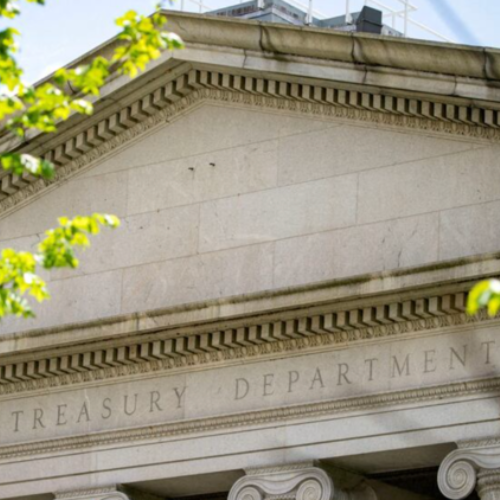The United States recently imposed significant sanctions on a major Syrian company, accusing it of supporting violent groups by channeling profits from oil sales. This company, Al-Qatirji, is alleged to be using funds to aid Iran’s elite Islamic Revolutionary Guards Corps-Quds Force (IRGC-QF) and Houthi fighters in Yemen.
Why the U.S. Targeted Al-Qatirji
On Thursday, the Biden administration made an impactful move by sanctioning 26 companies, individuals, and shipping vessels connected to Al-Qatirji Company. The U.S. Treasury Department accused the Syrian conglomerate of using oil profits to fund Iran’s IRGC-QF, a powerful military unit, and Houthi militants who have been involved in attacks on U.S. forces and other groups in the Middle East.
The IRGC-QF is known as Iran’s special operations force, responsible for operations outside Iran, including coordinating with various allied militia groups. The Houthis, an armed group in Yemen, have been particularly active in fighting and establishing control in their region, including attacks on U.S. and allied forces. According to Treasury officials, Al-Qatirji helps supply these groups with millions of dollars each month, which they use to fund weapons, training, and other operations.
How Al-Qatirji’s Money Flow Fuels Conflict
The Al-Qatirji Company generates hundreds of millions of dollars by selling Iranian oil to Syria and China. The U.S. Treasury says that some of these funds are funneled to IRGC-QF and Houthi militants. The funds are reportedly laundered through complex channels in large cities, such as Istanbul in Turkey and Beirut in Lebanon, before reaching the militant groups.
This isn’t the first time Al-Qatirji has been blacklisted. In earlier sanctions, it was cited for assisting fuel transactions between Syria and the Islamic State. The Treasury notes that the Syrian conglomerate has become a critical source of revenue for Iran’s IRGC-QF and its proxy groups, who are known for their destabilizing activities across the region.
According to the U.S., the IRGC-QF uses this money to support its goals, which include expanding its influence in the Middle East and funding groups that act on its behalf in various countries. This includes groups like Hezbollah in Lebanon, the Houthis in Yemen, and other militias in Syria and Iraq. These groups often target U.S. military personnel, regional allies, and commercial vessels in the region.
Iranian Bank Cards Gain Access in Russia Amid Sanction Evasion Moves
Who is Sanctioned and What it Means
The recent sanctions also targeted individuals within the Al-Qatirji Company. Key figures include:
- Hussam Bin Ahmed Rushdi Al-Qatirji (age 42): He leads the Al-Qatirji Company and is directly responsible for its operations.
- Muhammad Agha Ahmed Rashdi Qatirji (age 33): Hussam’s close associate who manages the company’s oil activities.
- Abbas Katerji (age 18): The young son of Muhammad Al-Qatirji, who is also involved in the company.
Sanctions were also imposed on multiple ships and companies associated with Al-Qatirji’s oil trading network. By blacklisting these individuals, companies, and vessels, the U.S. aims to disrupt Al-Qatirji’s ability to operate financially. With these sanctions, anyone who does business with them risks severe penalties from the U.S., limiting their options for trading or moving funds globally.
The sanctions come amid increasing tensions in the Middle East, where Iran has been accused of fueling conflict. IRGC-QF-backed Houthis have attacked shipping vessels and established a military blockade around the Red Sea, a critical area for international trade. They’ve also attacked U.S. and allied military personnel in the region, adding to concerns about the spread of violence. In the ongoing Israel-Hamas conflict, Iran and its affiliated groups have threatened to expand the war, escalating instability in the region.
Bradley Smith, Acting Under Secretary of the Treasury for Terrorism and Financial Intelligence, stated that the U.S. will keep using all available measures to limit Iran’s financial gains from these activities. The Treasury’s goal is to disrupt Iran’s ability to finance groups that it supports to influence regional conflicts and disrupt peace.
The Al-Qatirji Company’s leaders have reportedly met with major financiers, including Sa’id al-Jamal, a well-known Houthi financier already sanctioned by the U.S., and senior IRGC-QF officials. These meetings reportedly focused on financing, strategy, and logistics, underscoring how interconnected these groups and individuals are in sustaining Iran’s regional military agenda.


